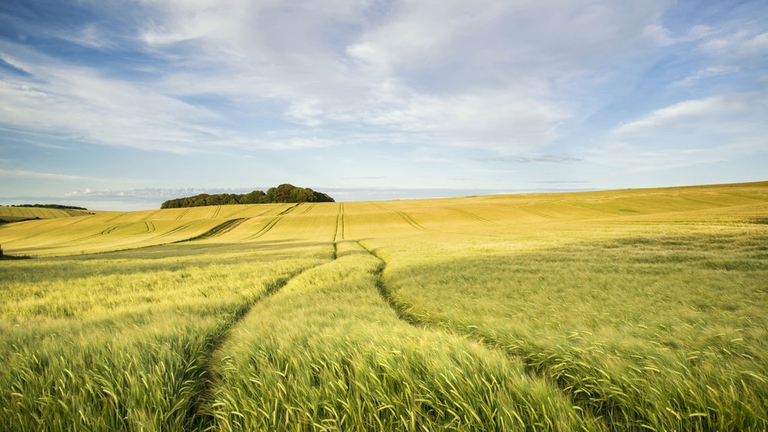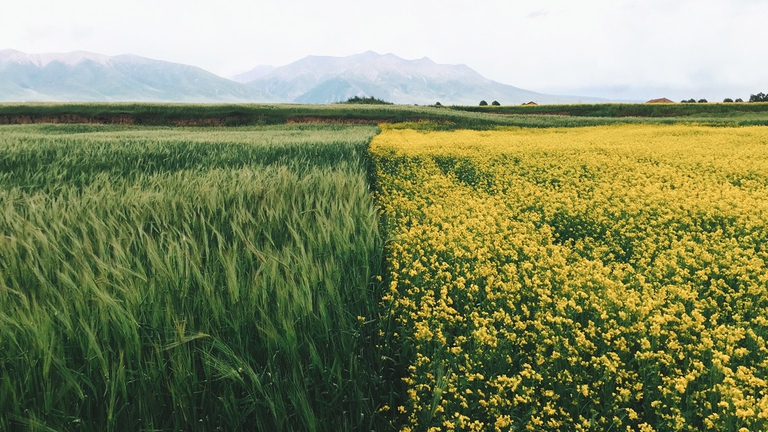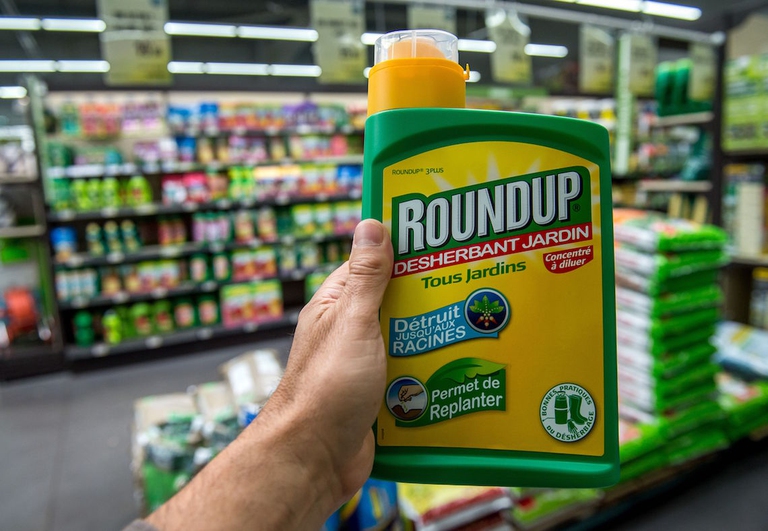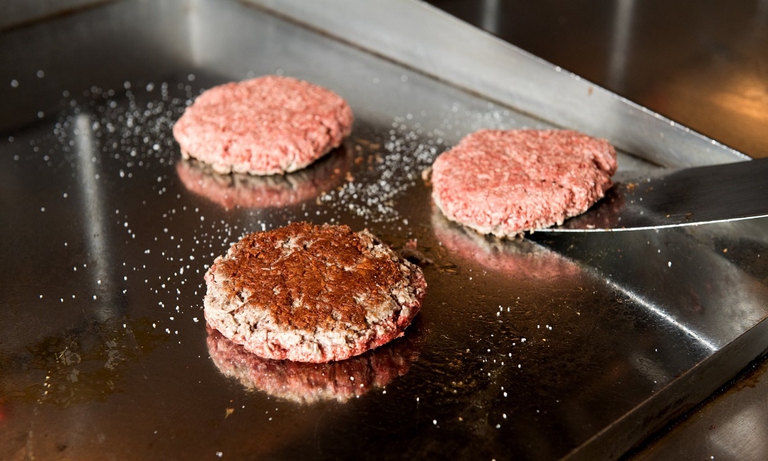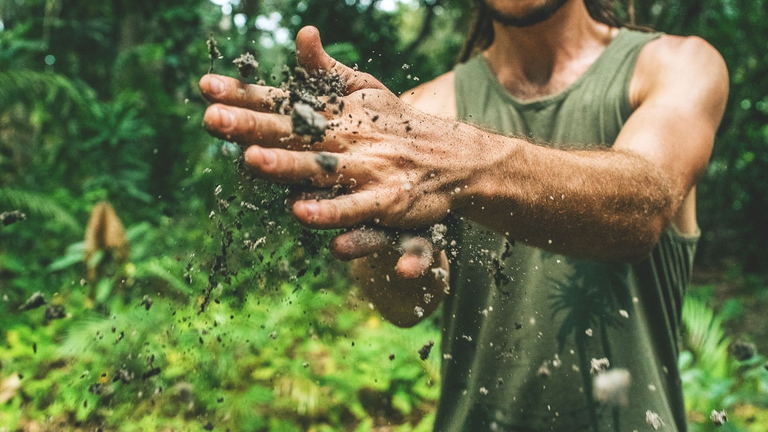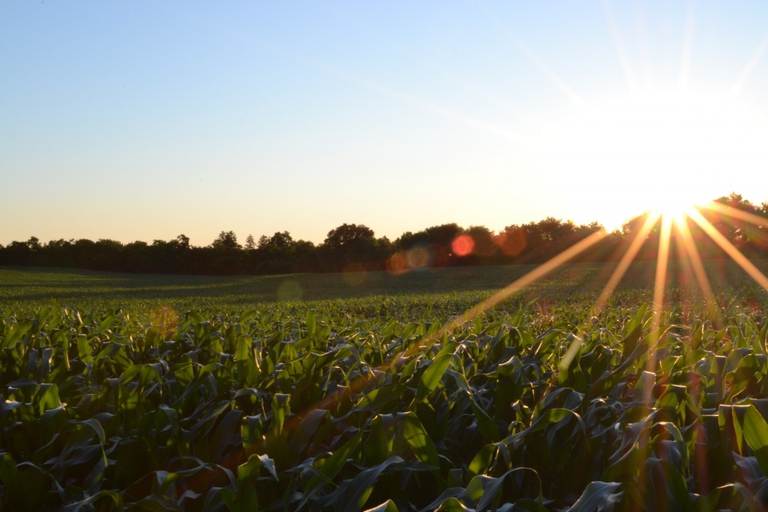
Joe Biden has chosen Tom Vilsack as the US’ agriculture secretary. Many fear he’ll favour large corporations instead of looking out for small farmers.
The mad rush to fake food, like fake meat made with genetically-modified soy, ignores the importance of the diversity of our foods and culinary cultures. It’s a recipe to accelerate the destruction of the Planet and our health.
Food is not a commodity, it is not “stuff” put together mechanically and artificially in labs and factories. Food is life. Food holds the contributions of all beings that make the food web, and it holds the potential of maintaining and regenerating the web of life. Food also holds the potential for health and disease, depending on how it is grown and processed. Food is therefore the living currency of the web of life.
As an ancient Upanishad reminds us “Everything is food, everything is something else’s food”. Good and real food are the basis of health. Bad, industrial, fake food is the basis of disease. Hippocrates said “Let food be the medicine”. In Ayurveda, India’s ancient science of life, food is called “sarvausadha”: the medicine that cures all disease. Industrial food systems have reduced food to a commodity, to “stuff” that can then be constituted in the lab. In the process both the planet’s health and our health has been nearly destroyed.
75 per cent of the planetary destruction of soil, water, biodiversity, and 50 per cent of greenhouse gas emissions come from industrial agriculture, which also contributes to 75 per cent of food related chronic diseases. It contributes 50 per cent of the greenhouse gases driving climate change.
Chemical agriculture doesn’t return organic matter and fertility to the soil. Instead it contributes to desertification and land degradation. It also demands more water since it destroys the soil‘s natural water-holding capacity. Industrial food systems have destroyed the biodiversity of the planet both through the spread of monocultures, and through the use of toxics and poisons which are killing bees, butterflies, insects, birds, leading to the sixth mass extinction.
Biodiversity-intensive and poison-free agriculture, on the other hand, produces more nutrition per acre while rejuvenating the planet. It shows the path to zero hunger in times of climate change. The industrial agriculture and toxic food model has been promoted as the only answer to economic and food security. However, globally, more than 1 billion people are hungry. More than 3 billion suffer from food-related chronic diseases.
Read also: Industrial agriculture isn’t feeding the world, only agroecology can
Industrial agriculture, based on fossil fuel and chemical intensive monocultures, uses 75 per cent of the land but produces only 30 per cent of the food we eat. Meanwhile, small, biodiverse farms using 25 per cent of the land provide 70 per cent of the food. At this rate, if the share of industrial agriculture and industrial food in our diet is increased to 45 per cent, we’ll have a dead Planet. One with with no life and no food.
The mad rush for fake food (like fake meat made with genetically modified soy), ignorant of the diversity of our foods and food cultures and the role of biodiversity in maintaining the our health, is a recipe for accelerating the destruction of the planet and our health.
Pat Brown, CEO and founder of Impossible Foods, has stated that they “sought the safest and most environmentally responsible option that would allow to scale our production and provide the Impossible Burger to consumers at a reasonable cost”.
Given the fact that 90 per cent of the monarch butterflies have disappeared due to Roundup Ready crops, and we are living through what scientists have called an “insectageddon”, using GM soya is hardly an “environmentally responsible option”. In stating this, Pat Brown reveals his total ignorance that weeds have evolved resistance to Roundup and have become “superweeds” now requiring more and more lethal herbicides.
At a time when across the world the movement to ban GMOs and Roundup is growing, promoting GM soya as “fake meat” is misleading the eater both in terms of the ontology of the burger, and on claims of safety.
Read also: How agricultural chemicals are poisoning our world. And all the (false) myths about them
The “Impossible Burger “ based on GMOs and Roundup-sprayed soya is not a “safe” option, as announced by Zen Honeycutt of Moms across America: “The Impossible Burger tested positive for glyphosate. The levels of glyphosate detected in the Impossible burger by the Health Research Institute Laboratories were 11 times higher than the Beyond Meat burger: 11.3 parts per billion (ppb) of glyphosate and its breakdown AMPA, against 1 ppb.
“We are shocked to find that the Impossible Burger can have up to 11 times higher levels of glyphosate residues than the Beyond Meat burger according to these samples tested. This new product is being marketed as a solution for “healthy” eating, when in fact 11 ppb of glyphosate herbicide consumption can be highly dangerous. Only 0.1 ppb of glyphosate has been shown to destroy gut bacteria, which is where the stronghold of the immune system lies. I am gravely concerned that consumers are being misled to believe the Impossible burger is healthy”.
Read also: Glyphosate, Monsanto ordered to pay 289 million dollars to a cancer patient
Recent court cases have showcased the links between Roundup and cancer. In this sense, the investments in Roundup Ready GM soya is blindness to the market. There is another ontological confusion related to fake food. While claiming to get away from meat “fake meat” is about selling meat-like products. Pat Brown declares to “use genetically engineered yeast to produce heme, the ‘magic’ molecule that makes meat taste like meat , and makes the Impossible Burger the only plant-based product to deliver the delicious explosion of flavour and aroma that meat-eating consumers crave”.
I had thought that the plant based diet was for vegans and vegetarians, not meat lovers.
Indeed, the promotion of fake foods seems to have more to do with giving new life to the failing GMO agriculture and the junk food industry, and the threat to it from the rising of consciousness and awareness everywhere that organic, local, fresh food is real food and regenerates the planet and our health. As a consequence, investments in “plant-based food companies” have soared from near 0 in 2009 to 600 million dollars in 2018. And these companies are looking for more.
This is about profits and control. Those who are jumping on the fake food goldrush have no discernible knowledge, or consciousness about, or compassion for living beings, the web of life, nor the role of living food in weaving that web.
Their sudden awakening to “plant based diets” , including GM soya, is an ontological violation of food as a living system that connects us to the ecosystem and other beings, and indicates ignorance of the diversity of cultures that have used a diversity of plants in their diets.
Read also: The fight against GM mustard in India is crucial for the global war on GMOs
Ecological sciences have been based on the recognition of the interconnections and interrelations between humans and nature, between diverse organisms, and within all living systems, including the human body. It has thus evolved as an ecological and a systems science, not a fragmented and reductionist one. Diets have evolved according to climates and the local biodiversity the climate allows. The biodiversity of the soil, of the plants and our gut microbiome is one continuum. In Indian civilisation, technologies are tools. Tools need to be assessed on ethical, social and ecological criteria. Technologies have never been viewed as self referential. They have been assessed in the context of contributing to the wellbeing of all.
Through fake food, evolution, biodiversity, and the web of life is being redefined as an “ancient unimprovable technology”, ignorant of the sophisticated knowleges that have evolved in diverse agricultural and food cultures in diverse climate and ecosystems to sustain and renew the biodiversity, the ecosystems, the health of people and the Planet.
The industrial West has always been arrogant, and ignorant, of the cultures it has colonised. Fake food is just the latest step in a history of food imperialism, a century and a half of colonisation of our diverse food knowledges and cultures. Soya is a gift of East Asia, where it has been a food for millennia. It was only eaten as fermented food to remove its anti-nutritive factors. But recently, GM soya has created a soya imperialism, destroying plant diversity. It continues the destruction of the diversity of rich edible oils and plant based proteins of Indian dals that we have documented.
While Indian peasants knew that pulses fix nitrogen, the west was industrialising agriculture based on synthetic nitrogen which contributes to greenhous gases, dead zones in the ocean, and dead soils. While we ate a diversity of “dals” in our daily “dal roti” the British colonisers, who had no idea of the richness of the nutrition of pulses, reduced them to animal food. Chana became chick pea, gahat became horse gram, tur became pigeon pea.
We stand at a precipice of a planetary emergency, a health emergency, a crisis of farmers livelihoods. Fake food will accelerate the rush to collapse. Real food gives us a chance to rejuvenate the earth, our food economies, food sovereignty and food cultures. Through real food we can decolonise our food cultures and our consciousness. We can remember that food is living and gives us life.
Siamo anche su WhatsApp. Segui il canale ufficiale LifeGate per restare aggiornata, aggiornato sulle ultime notizie e sulle nostre attività.
![]()
Quest'opera è distribuita con Licenza Creative Commons Attribuzione - Non commerciale - Non opere derivate 4.0 Internazionale.
Joe Biden has chosen Tom Vilsack as the US’ agriculture secretary. Many fear he’ll favour large corporations instead of looking out for small farmers.
Leydy Pech, winner of the 2020 Goldman Environmental Prize for North America, is the beekeeper who defended Mexican Maya land against the agro-industry.
Monsanto has falsely claimed it has been granted a patent on genetically-modified cotton seeds in India. But the Supreme Court ruling has upheld India’s law, which doesn’t allow patents on seeds. The op-ed by Vandana Shiva.
Monsanto is now property of Bayer, and its name has ceased to exist. Agriculture is in the hands of a few large corporations now more than ever, with dire consequences for people and the environment.
A transition towards agroecology is needed to beat the diktats of a production model that is poisoning our Planet and our lives. The op-ed by Navdanya International.
The only responsible decision the European Union can make is to stop the Bayer-Monsanto merger. However, the latest updates from the European Commission don’t seem promising. The deadline for the verdict of the merger between Monsanto and Bayer (which amounts to over 63 billion dollars) has been extended to the 5th April 2018. The European Competition
These are the top news stories of 2017 and the people who have most left a mark on a year that has been intense yet also rewarding from the point of view of social and environmental sustainability.
The fraud and corruption witnessed in the illegal introduction of Bt cotton in India are now being repeated with GM mustard. Farmers and our biodiversity were sacrificed for Monsanto’s profits.
Corporations are putting our lives and our environment at risk through a growing and improper influence over institutions, whose responsibility should be, instead, protecting people and the planet. The visible consequences have made it imperative to expose their devious tactics and their steadfast and corrupt lobbying, recently revealed in the Poison Papers (a compilation of over
